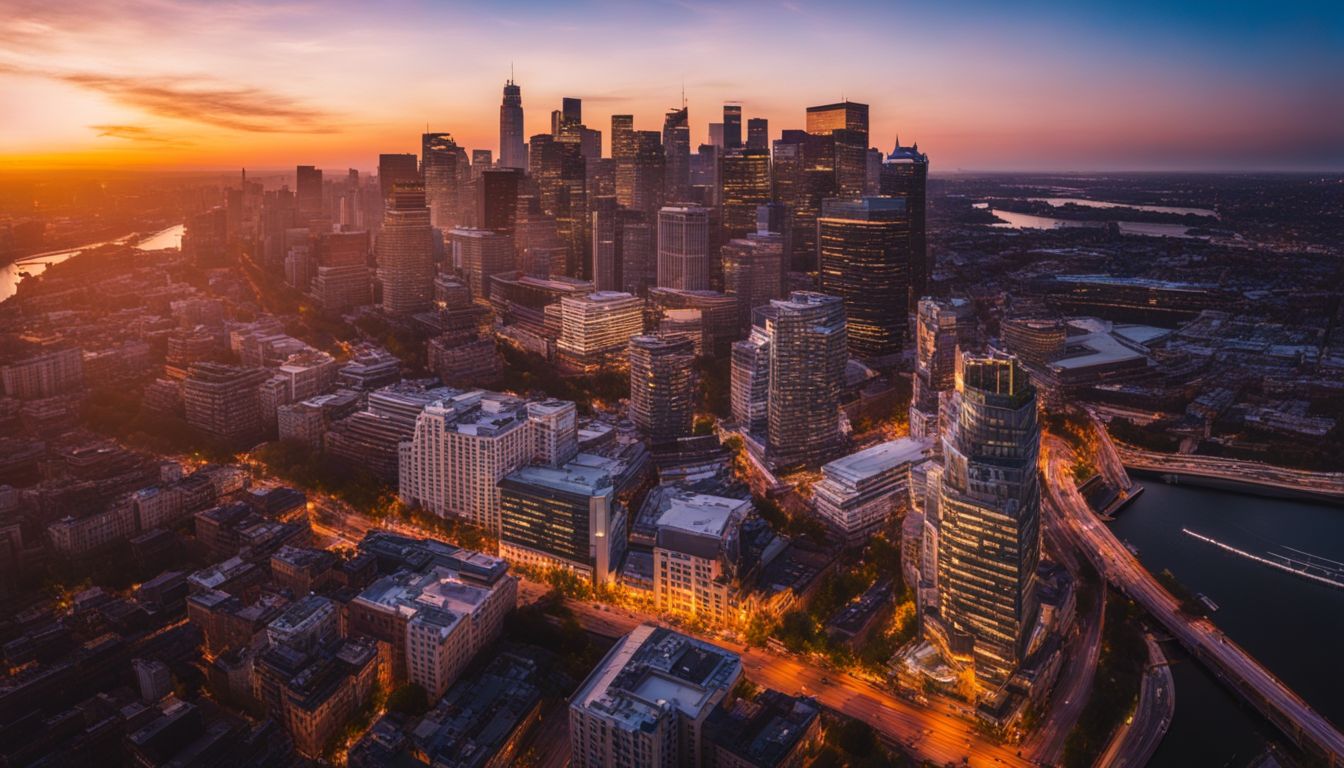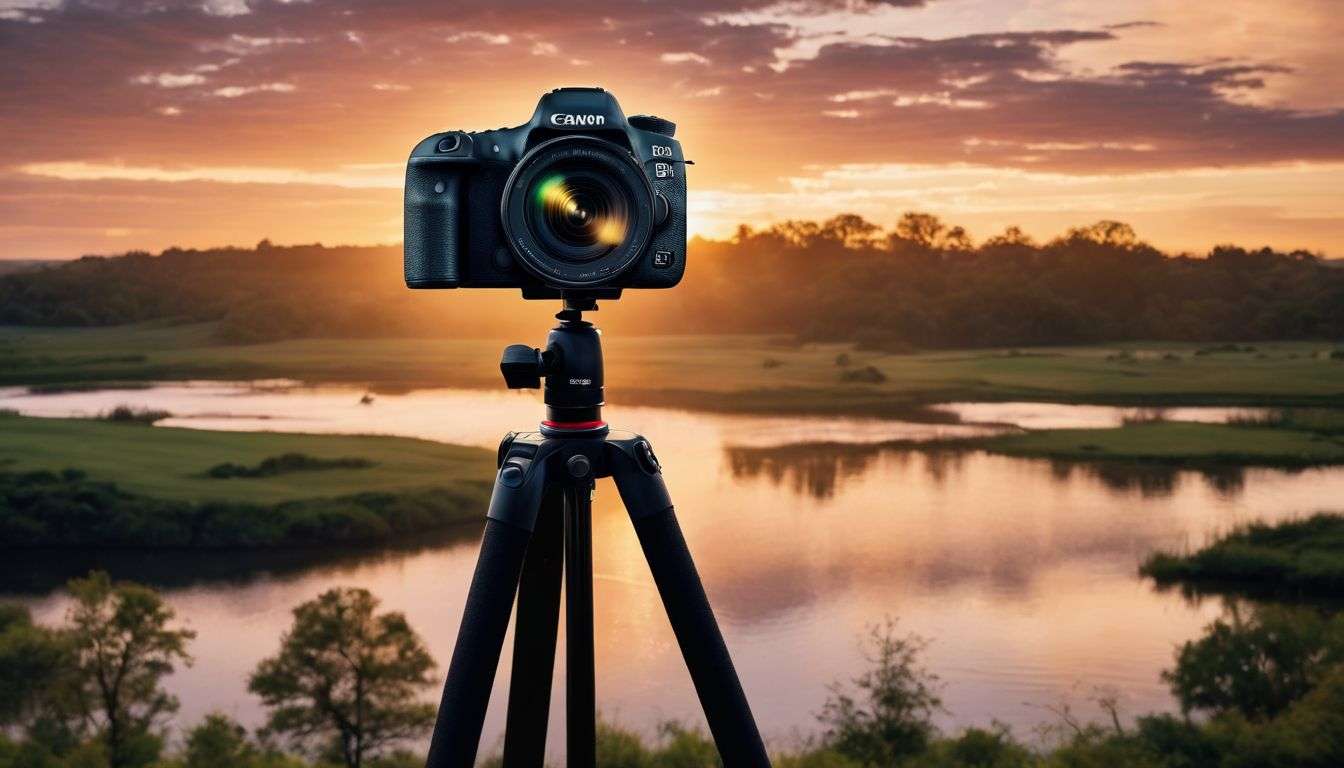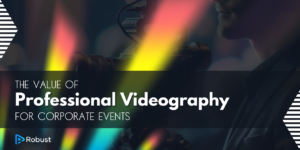Ever found yourself marvelling at the magic of videography, entranced by the captivation of sights and sounds unfolding on screen? It’s not just you. Many are captured by this enticing form of visual storytelling, contemplating its true value.
Videography is far more than a quaint pastime or fleeting interest for many – it has woven itself into the very fabric of our communication today, finding its place in industries as diverse as entertainment to digital media.
This piece aims to shed light on the worth of honed videography skills and provides insight into how one can effectively enhance them. Are we ready for action?.
Key Takeaways
- Videography skills encompass photography, editing, creativity, physicality, and soft skills.
- Improving your photography skills is crucial for becoming a skilled videographer and creating visually appealing footage.
- Enhanced storytelling abilities are a valuable outcome of developing videography skills.
- To improve your videography skills, practice regularly, collaborate with other videographers, take classes or workshops, and invest in quality equipment.
What Are Videography Skills and Examples

Videography skills encompass photography, editing, creativity, physicality, and soft skills. Photography skills involve capturing high-quality footage with a camera. Editing skills involve the ability to arrange and enhance footage in postproduction.
Creative skills are essential for visual storytelling and innovative videography techniques. Physical skills include operating equipment and handling cameras smoothly. Soft skills such as listening ability and team management also contribute to successful videography.
Photography skills
We need good photography skills for videography. These skills help us work a camera and know what looks good on film. We learn to pick the best light for our footage. We also understand the right way to use angles, focus, and framing.
The more we play with our photos, the better videos we make later! Using DSLR cameras trains us well in this skill.
Editing skills
Editing skills are key in videography. After shooting a video, the footage needs cleaning up and refining. This is where our sharpened editing skills come into play. We use top-notch software to cut and trim clips.
Then we arrange them in order, add sound effects or music as needed.
It’s vital to have an eye for detail in editing too. We look at every frame closely to make sure all parts fit well together. A good edited video should flow smoothly from start to end without any jarring cuts or jumps.
So strong editing skills help us turn raw footage into polished videos that viewers love watching!
Creative skills
Creative skills are very important in videography. We use these to make each video unique and interesting. With creativity, we can tell a story in our own way. It lets us express ourselves through the video we create.
This is what makes our work stand out from others‘. Working on this skill opens up new ways of seeing things. It helps us find beauty even in simple scenes and moments. Creative skills push us to try new techniques and styles, keeping our work fresh all the time.
Physical skills
Holding a camera can be hard work. You need strong arms and hands to keep it steady. Your legs must stay firm too when you’re standing for a long time. Also, you have to move fast from one spot to another to get the best shots.
Sometimes, you even climb trees or go down into caves! So, being fit is important for this job. Plus, good eyesight helps to see everything clearly through the lens.
Soft skills
Soft skills hold a big part in videography. They are the person’s traits or habits that define how we work. These skills include teamwork, good listening ability and strong communication.
All of these are needed when you work with others on a video project. It also requires patience to get the best footage. For example, wedding filming needs these skills as you have to deal with many people at once.
Creativity and innovation play key roles too. You need new ideas for videos all the time so they stay fun and fresh for viewers.
Detailed Overview of Videography Skill (https://www. example. com/what-is-videography-skill/)
-cdc75d12ce-33929750.jpg)
Videography, my dear reader, is a truly dynamic skill that extends far beyond the simple act of pressing record on your camera. It’s akin to weaving magic with a medley of creativity, technical knowledge and tenacity.
Picture this – capturing life’s fleeting moments frame by scrumptious frame; subsequently transforming them into captivating video narratives for a range of platforms. Perhaps it’s corporate branding videos or titillating YouTube content that sparks inspiration.
Operating cameras with finesse, creating compelling footage that commands attention, leading teams effectively and adding value through the crucial postproduction phase are only fragments of what shapes videography skills.
Impressively though, chums, these artisans prove their mettle in an array of environments and situations – be it cosy indoor shoots for wedding films or commanding high-budget cinematographic projects.
Moreover lads and lasses , we mustn’t forget the necessity to be agile in our thinking when navigating the rapid advances within digital media technology. So even as we raise our hats off to innovation , let us remain ever forward-thinking , continuously learning new concepts whilst cherishing our priceless moments captured forevermore .
The Value of Videography Skills
Videography skills have significant value due to the high demand in the industry, countless business opportunities, and the enhanced storytelling abilities that come with improved photography skills.
Demand in the industry
Many businesses want good video content. They need it for ads, product demos, and more. People watch a lot of videos every day. It’s an easy way to share info fast and fun. This has made videography skills very useful in many fields like corporate branding or wedding filming.
Videographers also earn well which makes this skill even more attractive. The pay varies but the high demand keeps wages up!
Business opportunities
Learning videography skills opens up a world of business opportunities. In today’s digital age, video production is in high demand across various industries. Companies often rely on videos to promote their products or services, create engaging content for social media platforms, and enhance their corporate branding strategies.
As a skilled videographer, you can offer your expertise to businesses looking to create professional and visually appealing videos. Moreover, wedding videography is another lucrative market where couples are willing to invest in capturing their special day on film.
By honing your videography skills, you can tap into these business opportunities and establish yourself as a sought-after professional in the industry.
Improved photography skills
Improving photography skills is an important aspect of becoming a better videographer. When our photography skills are enhanced, we learn how to capture the best shots and moments in our videos.
This includes understanding composition, lighting, and framing, which all contribute to creating visually compelling footage. Additionally, having strong photography skills allows us to take high-quality still images from video clips for promotional purposes or social media posts.
By continuously practicing and learning new techniques, we can develop our eye for detail and improve the overall aesthetic of our videos.
Furthermore, improved photography skills also help us with storytelling in videography. Through visual storytelling techniques such as capturing emotion or emphasizing certain elements in a scene, we can engage viewers on a deeper level.
With better composition and framing choices, we can guide the audience’s attention to key points in the video effectively. Our ability to tell stories through visuals is essential for conveying messages or evoking emotions without relying solely on dialogue or text.
Enhanced storytelling abilities
Enhancing storytelling abilities is one of the valuable outcomes of developing videography skills. With videography, we have the power to capture moments and convey emotions through visuals and audio.
By learning how to create compelling videos, we can better engage our audience and evoke powerful reactions. Videography allows us to tell stories in a visually captivating way, showcasing our creativity and delivering messages with impact.
Through video production techniques such as editing, postproduction, and audio recording, we can enhance the narrative flow and create a more immersive experience for viewers. With improved storytelling abilities, we can effectively communicate ideas, document events, or promote products/services using visual storytelling techniques.
How to Improve Videography Skills
To improve videography skills, it is important to practice regularly and consistently. Collaborating with other experienced videographers can also be helpful in learning new techniques and gaining inspiration.
Taking classes or workshops dedicated to videography can provide valuable knowledge and guidance. Investing in quality equipment, such as a high-quality camera and editing software, is essential for producing professional-looking videos.
Practice
Practicing is essential for improving videography skills. Here are some ways to practice:
- Experiment with different camera settings and techniques.
- Capture footage of everyday objects or scenes to sharpen your observation skills.
- Film short clips of friends or family members to practice composition and framing.
- Try different editing techniques using video editing software.
- Film in various lighting conditions to understand how it affects the final result.
- Practice storytelling by creating short videos with a beginning, middle, and end.
- Challenge yourself with different genres, such as documentary – style filming or action sequences.
Collaborate with other videographers
Collaborating with other videographers is a great way to improve your skills. Here are some benefits of working with others in the field:
- Learn new techniques and approaches from experienced videographers.
- Gain different perspectives and ideas for your projects.
- Share knowledge and tips with each other.
- Build a network of professionals who can support and refer you for future opportunities.
- Collaborate on larger projects that require multiple videographers.
- Receive feedback on your work to help you grow and improve.
- Exchange equipment or resources to save costs and expand your capabilities.
Take classes or workshops
To improve your videography skills, consider taking classes or workshops. Here are some options to consider:
- Enroll in a videography course at a local college or university.
- Attend workshops offered by professional videographers in your area.
- Join online courses or platforms that offer video production tutorials.
- Participate in webinars or virtual conferences focused on videography techniques.
- Look for community centers or organizations that offer affordable classes or workshops.
Invest in quality equipment
Investing in quality equipment is vital for anyone looking to improve their videography skills. High-quality cameras, lenses, microphones, and tripods can significantly enhance the overall video production process.
With better equipment, you can capture clearer and more detailed footage, ensuring that your videos look professional and polished. Additionally, investing in good editing software and hardware allows for smoother post-production work and ensures high-quality final products.
Quality equipment not only improves the technical aspects of videography but also boosts confidence levels as a videographer. It shows a commitment to professionalism and dedication to producing top-notch videos that will surely leave a lasting impression on your audience.
Conclusion
In conclusion, videography is indeed a valuable skill to have. It allows individuals to express their creativity and capture moments in a unique way. With the demand for video content increasing in various industries, learning videography skills can open up new business opportunities and enhance storytelling abilities.
So, whether you’re interested in corporate branding or wedding filming, investing time in improving your videography skills can lead to exciting possibilities in today’s digital world.
How Long Does It Take to Develop Valuable Videography Skills?
Learning videography time frame varies depending on the individual’s dedication, prior experience, and the methods utilized. Some may acquire valuable skills within a few months, while others may require years of practice and training. It is essential to remember that consistent practice, experimentation, and study are crucial for honing one’s videography abilities.
Is Learning Videography Useful for Real Estate Professionals?
Real estate videography frequently asked questions (FAQs) tackle the usefulness of learning videography for real estate professionals. Professionals in this industry understand the impact of visually appealing content, making learning videography an essential skill. By showcasing properties through videos, real estate professionals can attract potential buyers, improve marketing efforts, and create a more immersive experience for clients. Investing time in learning videography can undoubtedly prove beneficial for real estate professionals.
FAQs
1. Is videography a valuable skill?
Yes, videography is a valuable skill as it allows you to capture and create videos for various purposes like filmmaking, marketing, or personal documentation.
2. Can learning videography help me professionally?
Learning videography can definitely help you professionally as it is in demand in industries such as advertising, media production, event management, and social media management.
3. Do I need expensive equipment to start learning videography?
No, you don’t need expensive equipment to start learning videography. Many smartphones have high-quality cameras that can be used for basic video recording. As you progress, you can invest in more advanced equipment if needed.
4. How long does it take to become proficient in videography?
The time it takes to become proficient in videography varies depending on your dedication and the amount of practice you put into honing your skills. With consistent effort and practice, most people can become competent within a few months.
5. Are there any online resources available for learning videography?
Yes, there are many online resources available for learning videography such as tutorials on YouTube or online courses offered by platforms like Udemy or Coursera. These resources provide step-by-step guidance on various aspects of filming and editing videos.






